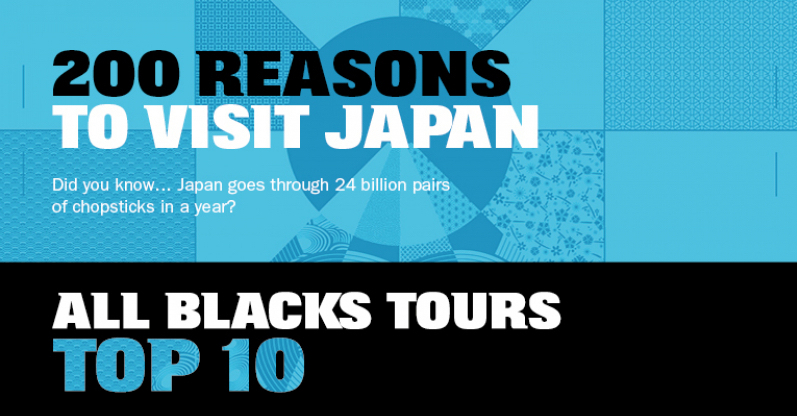5 ways the travel industry is changing the world
A combination of fierce competition and digital disruption has meant the travel industry has had to become increasingly adept at trying new things and taking risks – with record-breaking results. We asked someone who’s been there, done that – All Blacks Tours General Manager and Chemistry client, David Caldwell – to share his key learnings after a period of significant growth and success.

- Test and learn with technology
The travel industry invests heavily in technology and there is a lot that other industries could learn by looking at the digital approaches being adopted by some of the largest players. The InterContinental Hotels Group, for example, announced revenues of $1.8bn three years ago which it attributed to the investment in mobile. The IHG mobile app delivered over 40% of all digital visits and contributed more than $1bn in revenues, up from less than $50 million in 2010. But you don’t have to build a hugely expensive app to get results. We’ve found the latest dynamic digital advertising can be an incredibly effective acquisition tool.

- SEO-up your website
A good SEO strategy is important for any business, but for the travel industry it’s critical. Travellers are notoriously disloyal, they chase the cheapest deal and expect the longer they wait the cheaper it will get. For me, it’s vital that our website adopts all the best practices regarding on-site SEO, page speed and mobile performance in particular, improving the user experience both on and offline.

- Think global, go local
The best sites of hotel groups and airlines have a high level of localisation and deliver content in multiple languages including those of their country’s largest immigrant populations. If you want to play on the global stage, It’s really important to segment, tailor and localise your messaging – choosing imagery that’s culturally appropriate, localizing your calls to action so it’s easy to get in touch and adjusting currency units and measurements to create a seamless customer experience and connect with customers across the world.

- Invest in quality content marketing
The travel industry was one of the first to create editorial content to answer specific questions that would-be buyers might ask before they decide on an operator and embark on their trips. We’ve found strong storytelling and creative copywriting techniques along with stunning imagery can really engage users, drive enquiries and ultimately sell more product. Every business needs a compelling story which they can articulate clearly for their offering, and good content marketing is one of the best ways to do this.

- Be aware of complacency
No industry can afford to be complacent. The travel industry faces significant risks to the growth across all service offerings like hotels, airlines and tour operators. Airbnb is a current example that poses a significant risk to the status quo. Expedia, Viator and various low cost airlines were all developed to “disrupt” the norm created by the bricks and mortar travel agencies and airlines. Other industries must be aware of what disruptions could impact their business and deeply undertstand that their USP needs to counter the potential disruptive players in their sector.
